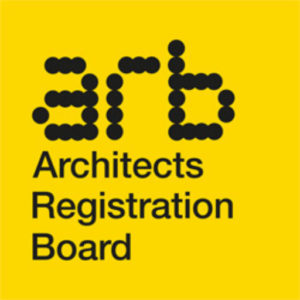For Part 3 candidates

Introduction
If you are currently studying for your Part 3 qualification, or are about to start a Part 3 course, the information you need is likely to fall into two distinct categories:
- information about Part 3 courses and registration requirements, including practical experience requirements, which you will need for your own career development; and
- information about the regulation of architects including the Code of Conduct and Practice which forms part of the Part 3 Criteria against which you will be assessed for your professional practice examination
Part 3 courses and registration requirements
ARB prescribes (recognises) qualifications at Part 3 level in exactly the same way as it prescribes Part 1 and 2 qualifications. Part 3 qualifications differ considerably from Part 1 and Part 2 qualifications, however, both in structure and in assessment.
One of the primary differences is that as a candidate you will need to be aware of the Part 3 Criteria against which you will be assessed and ensure that you are demonstrating how you meet those Criteria in the work you submit for assessment and the practical experience you undertake. The RIBA publishes a summary which will help you to compare Part 3 courses in terms of fees, assessment and format.
Eligibility to take a Part 3 qualification
ARB does not require that you take Parts 1, 2 and 3 sequentially (in other words, that you have a Part 1 qualification before enrolling on a Part 2 qualification and so on) but many schools will require this and you should check on their individual entry requirements/entry policies. You will, however, be required to have all 3 qualifications in place in order to apply for registration.
If you do not currently hold prescribed qualifications at Part 1 and/or Part 2 because you have studied outside the UK or you have followed a non-recognised course within the UK, you may be eligible to take the Board’s Prescribed Examination for Equivalence to Prescribed Qualifications which is the means by which ARB assesses whether you have the same level of knowledge, skills and abilities as someone who has taken a prescribed qualification at the same level.
Candidates are eligible to take the Part 1 examination if they have gained a non-prescribed qualification in architecture at first degree level after completing a course of at least three years’ full time study or the part time equivalent.
For Part 2, candidates must hold a non-prescribed qualification in architecture at second degree or diploma level which was awarded following at least two years of full time study or the part time equivalent, and which was taken after being awarded a qualification in architecture at first degree level.
ARB does not require that you take the Prescribed Examination(s) before taking a Part 3 qualification but, again, individual institutions may require this and you are advised to check with the institution concerned.
After registration
Once you are on the Register you are expected to maintain your competence to practise in areas relevant to your work.
The Board has issued guidance on what this is and what is involved but if you are a member of the RIBA, and you comply with their CPD requirements (or those of another appropriate professional body) you are likely to satisfy the Board.
The Board does not currently monitor how architects maintain their competence so there is no requirement to submit details of what you are doing but you are advised to keep a record of your activities.
If you resign from the Register for whatever reason and are away for two years or more, should you then wish to reapply, you will have to be able to demonstrate that you have maintained your competence before you can be readmitted.
This will be determined by the Competency Standards Group which is made up of practising architects.
Regulation of architects in the UK
The Architects Registration Board is the independent statutory regulator and competent authority for architects in the UK. Its roles and responsibilities are governed by statute, the Architects Act 1997 (amended in 2008).
As a regulator, the Board is concerned about standards within the profession and therefore sets standards for entry to the Register, through its prescription process and also for the conduct of those on the Register through its Code of Conduct and Practice. The Board publishes the decisions of all disciplinary cases on its website which will give you an insight into how the Code is applied in practice.
Any questions about the Code and its application and protection of title should be directed to the Professional Standards Department at info@arb.org.uk
